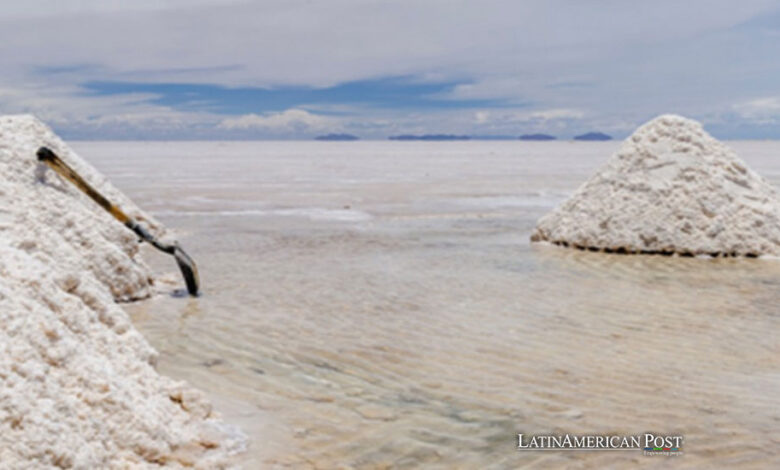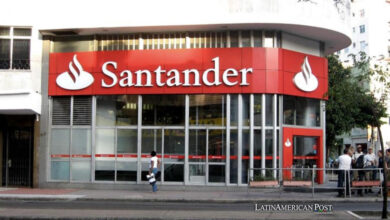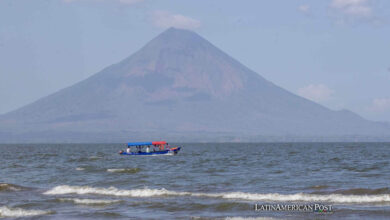Bolivia Advances in Lithium Industry with Global Partnerships

Bolivia has moved 21 of 38 international companies to the second phase of a national call to invest in lithium and evaporitic resources using Direct Extraction Technology (EDL) across seven salt flats, marking a significant stride in resource utilization.
In a significant development in the global lithium market, Bolivia has recently advanced 21 international companies to the second phase of a crucial initiative aimed at exploiting the country’s vast lithium and evaporitic resources. This initiative, centered around using Direct Extraction Lithium (EDL) technology, underscores Bolivia’s strategic moves to position itself as a critical player in the burgeoning global lithium industry.
Bolivia houses some of the world’s largest lithium reserves, particularly in the Salar de Uyuni, which is the most enormous salt flat globally and one of the most lithium-rich locations on earth. The country’s lithium deposits, estimated at 23 million tonnes, represent a substantial portion of the global reserves. This immense resource has positioned Bolivia at the forefront of the so-called “Lithium Triangle,” including Argentina and Chile.
Strategic Development of Lithium Resources
The recent call for international cooperation marks Bolivia’s ongoing efforts to develop these resources sustainably and profitably. The state-owned company Yacimientos de Litio Bolivianos (YLB), under the leadership of Karina Calderón, is at the helm of this initiative. The 21 companies progressing in the call are now expected to submit detailed proposals that include technological, industrial, and environmental aspects, ensuring the comprehensive development of Bolivia’s evaporitic resources.
Direct Extraction Technology is heralded as a game-changer in the lithium extraction industry due to its efficiency and reduced environmental footprint compared to traditional methods like solar evaporation. This technology allows for quicker lithium extraction from brine without the extensive and environmentally taxing evaporation processes. With EDL, Bolivia aims to streamline its lithium production processes, enhance output, and minimize ecological impacts—a critical consideration given the fragile ecosystems of the Andean salt flats.
International Interest and Partnerships
The call has attracted diverse international companies from Europe, China, Russia, and Argentina, reflecting the global significance of Bolivia’s lithium reserves. Previously, Bolivia has partnered with Chinese firms CATL BRUNP & MOC and Citic Guoan, as well as Russia’s Uranium One Group, to develop carbonate lithium plants. An agreement with Indian firm Altimin to develop lithium-ion battery technology underscores the broad scope of Bolivia’s lithium ambitions, extending beyond extraction to encompass the entire production cycle of lithium-ion batteries.
Despite these advancements, Bolivia’s lithium development has faced challenges, including criticisms of the environmental sustainability of extraction methods and concerns over the transparency and efficiency of industrial projects. The recent inauguration of an industrial complex designed to produce 15,000 tonnes of lithium annually has been scrutinized for alleged irregularities. These challenges highlight the complex balance Bolivia must maintain between exploiting its natural resources and ensuring environmental and social sustainability.
Economic and Geopolitical Implications
The development of Bolivia’s lithium resources has significant economic and geopolitical implications. As the demand for lithium, primarily driven by the global shift towards electric vehicles and renewable energy storage solutions, continues to soar, Bolivia’s role in the international market could shift dramatically. Effective development and management of lithium resources can provide substantial economic benefits to Bolivia, including increased foreign investment, job creation, and enhanced technological capabilities.
Also read: Bolivia’s Quinoa Boom: From Ancient Staple to Global Superfood Odyssey
Bolivia’s strategic advancements in lithium extraction and processing, exemplified by the international call involving EDL technology, represent a critical juncture in the country’s economic and environmental future. As Bolivia navigates the complexities of resource management, global collaboration, and technological innovation, it stands on the precipice of becoming a lithium superpower. However, the journey is fraught with challenges requiring careful policy, transparent governance, and sustainable practices. The outcome of this initiative could not only reshape Bolivia’s economy but also significantly influence the global lithium market and the broader push toward sustainable energy practices.





